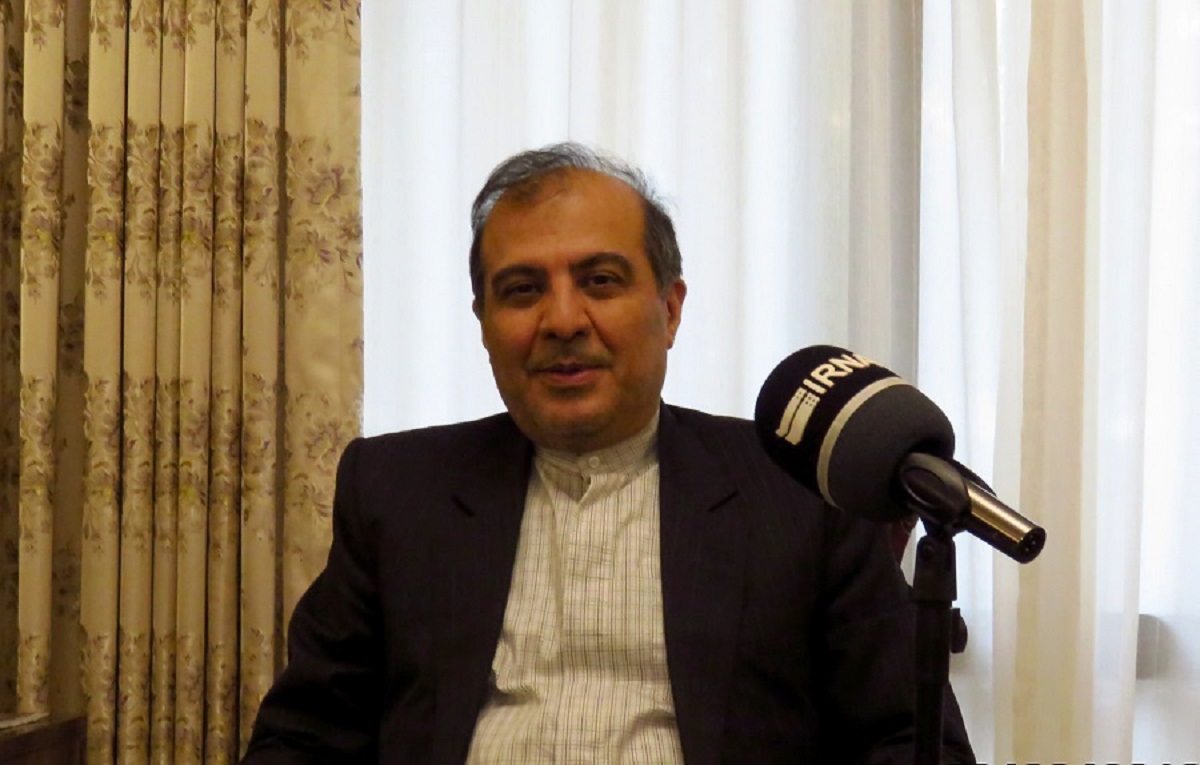
'After quitting the Iran nuclear deal, (formally known as the Joint Comprehensive Plan of Action (JCPOA)), the US has been trying to promote further its Iranophobia project across the world community. So it is necessary for Iran to maintain its trade and political relations with its main partners like China,' said Ali-Asghar Khaji on his last day as Iran's ambassador to China.
In August 2014, Khaji was appointed as Iran's ambassador to China and Accredited Ambassador to Mongolia. He was the adviser to the Minister of Foreign Affairs in charge of Europe and American affairs before being appointed as Iran's ambassador to China.
In his 30-year long service, he has had many positions, including Political expert of Ministry of Foreign Affairs (1985-1987), Adviser to the Minister of Foreign Affairs and Director General of the Persian Gulf Department of the Ministry of Foreign Affairs (1996-2000), Ambassador of the Islamic Republic of Iran to Saudi Arabia (2000-2004), Ambassador of the Islamic Republic of Iran to Belgium and the European Union and Accredited Ambassador of the Islamic Republic of Iran to Luxembourg (2007-2011), and Deputy Minister of Foreign Affairs for European and American Affairs (2011-2013).
Abdunnaser Hemmati, former head of Iran's Central Insurance Company, is expected to replace Khaji.
'Presently, China intends to defend Iran and the nuclear deal [signed between Tehran and the world powers in 2015] and the visit of the Iranian President [Hassan Rouhani] to China, after Washington quit the Iran Deal, has strengthened such a tendency among officials in Beijing to enter an array of agreements with Tehran,' he said.
'China has always been among Iran supporters and will continue to do so and with regards to the speed of expansion of commercial, economic, political, cultural and military ties between the two countries over the past four years, the cooperation can be deepened in favor of both parties,' he added.
He also said that in the last month of 2017 trade between Iran and China stayed at 37.3 billion dollars, showing a 20 percent growth compared to the same period in 2016.
China is the biggest buyer of Iranian oil, importing 630,000 to 640,000 barrels per day, he said.
Khaji added that Iran and China have planned to increase the level of their commercial relations up to 60 billion dollars annually.
'Despite the fact that countries like the United States or its allies, like the Zionist regime of Israel, have been trying to disrupt relations between Iran and China in the past few years, the Chinese authority managed to go on with the path to enhance further mutual ties between the two countries,' he said.
Khaji said that an example of such an expansion in bilateral trade relations is the signing of 35 billion dollars worth of finance agreements in the framework of 10 projects.
Regarding the cultural relations between Iran and China, he said there have been many cultural engagements, including doubling the number of Iranian students studying in the Chinese universities in the past four years, reaching 1,480, the opening of Iran technology cooperation office in Shenzhen, southeastern China, attending book fairs, opening the council of Iranian traders residing in China and holding annual conferences of Iranian scholars residing in the country.
The former ambassador of Iran to China said that the banking issues of Iranian students in China are still standing, which he said has been a priority of the Iranian Embassy in Beijing.
The issue was discussed in the meeting between President Hassan Rouhani and President Xi Jinping.
Iranian president appointed First Vice-President Eshaq Jahangiri as the head of the council for expansion of relations between Iran and China, which was a good move that shows president Rouhani is after creating synergy among all the organizations that somehow have relations with China.
Regarding the JCPOA, Khaji said that foreign policy of China is now becoming more and more independent of the United States.
More than 100 joint workgroups in different fields are active in China and the US, so their relation is one of high priority, he said.
Trade between the US and China stands at around 570 billion dollars a year, he added.
China is the second biggest economy in the world, the fourth biggest country in size, and a member of the United Nations Security Council, Khaji said.
Beijing has tried to make decisions independent from those of the US, although there has been some strategic collaboration between them in many international issues, he said.
He added that in the same path, China is trying to play the first role in the world, but the US is trying to slow it down.
It is felt that, in the long run, the relation between the US and China is to be based on interactions and non-military competitions, he said.
'Therefore, the US will keep pressing China to limit its economic ties with Iran, this is while, our relations with China will keep growing,' he stressed.
'Of course, Tehran-Beijing ties may be slightly affected by the US-China relations in the short run but will be independent in the long run.'
9417**2044
Follow us on Twitter @IrnaEnglish
 solhkhabar | Peace International News Agency Peace International News Agency , Peace News , International Agency News of Peace
solhkhabar | Peace International News Agency Peace International News Agency , Peace News , International Agency News of Peace